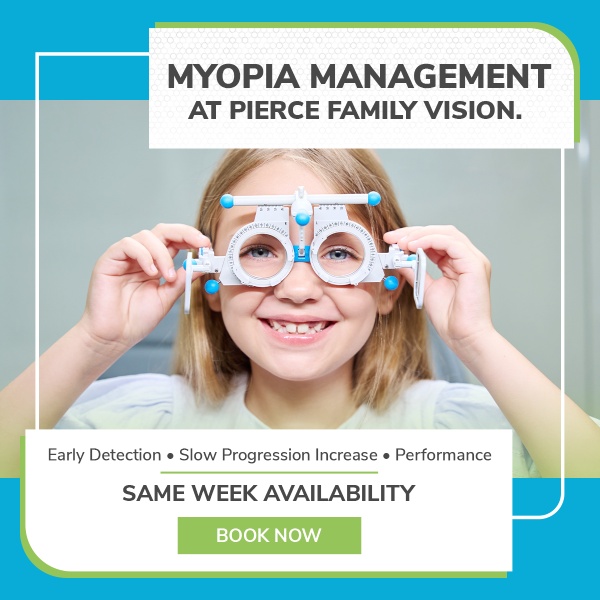A cataract is a haze in the lens in the eye, like a smudge on a camera lens. The lens in the eye sits right behind the iris (the coloured part of the eye). A cataract causes blurred vision at distance and near, even with the best possible glasses correction.
Cataract surgery is the most commonly performed surgery in Canada, during which the cloudy natural lens is removed, and a clear permanent artificial intraocular lens or IOL is implanted (like a contact lens, but inside the eye behind the iris). Different powers and designs of implant lenses can be used, which can drastically reduce the spectacle prescription and in some cases even eliminate the need for glasses entirely. Cataract surgery is very safe and low risk (but not no risk). It is a fairly quick outpatient procedure during which the patient is lightly sedated for comfort and requires only drops after to prevent infection and inflammation.
Historically, OHIP covered the entire procedure except for an optional $200 pre-surgical measurement, and the surgeries were all done at St. Mary’s Hospital and Cambridge Memorial Hospital using a standard implant lens. In the last few years, private clinics in the Waterloo Region have been offering cataract surgery (involving upgraded lenses with different options) at a cost of about $1700-$5000 per eye with dramatically reduced wait times. Recently, the Government of Ontario has announced they will be funding some entirely OHIP-funded procedures with the standard implant lens at these private clinics to improve wait times.
Types of Implant Lenses
Monofocal IOL
This is either the same basic lens that is covered by OHIP or a paid aspheric upgrade for slightly better optics. The surgeon will usually try to get the patient as close as possible to fully corrected for one distance (usually the far distance) but will still require at least reading glasses and sometimes multifocal glasses. Myopic patients who can currently read at near without glasses (and only put glasses on for distance) can request this option instead, but only one distance can be corrected with a monofocal lens. Even a basic OHIP lens will dramatically reduce the glasses prescription, so an upgrade is not necessary as long as wearing low-powered glasses after surgery is acceptable to the patient.
Toric Monofocal IOL
This lens still only corrects one distance, but for patients with significant astigmatism, it has a better chance of giving them better vision correction at that one distance. These IOLs still usually require at least reading glasses and sometimes multifocal glasses after surgery. This lens is not fully covered by OHIP and will have a cost to the patient.
Multifocal IOLs (Trifocal or EDOF)
This is similar to a multifocal contact lens, where the patient sees distance and near images at the same time, which usually reduces or eliminates dependence on glasses after surgery. There are now a few different designs (which are changing all the time):
- Trifocal IOLs (e.g. Panoptix) have the best chance of freedom from any glasses as they focus distance, intermediate, and near all at the same time. However, 100% of patients who go with trifocal IOLs will have some ghosting of images or halos (mainly noticeable while night driving), which can be annoying. If freedom from halos night driving is NOT a priority, but freedom from glasses IS a priority, then this lens may be a suitable choice for multifocal IOL.
- EDOF or Extended Depth of Focus IOLs (e.g. Vivity) are meant to correct distance and intermediate (arm’s length) distance but will likely require glasses for near. This lens will have a lower chance of halos while night driving. If freedom from halos night driving is a priority and wearing occasional reading glasses for near is acceptable, then this lens may be a suitable choice for multifocal IOL.
Multifocal IOLs (Trifocal/EDOF lenses) are the most expensive of the IOLs but may be the most suitable choice if independence from glasses is the primary motivation. For patients who are happy to wear glasses after cataract surgery and prioritize clarity of vision, then a monofocal IOL with continued use of glasses for distance, near, or both may still be a suitable option.
So, What Are My Choices as a Patient with Cataracts?
- Do you want to have a no-charge consultation visit to a private clinic to find out about paid options (no obligation and can still opt for OHIP-funded), or do you just want a consultation referral for entirely OHIP-funded surgery?
- For private clinic consultation, do you want to go to TLC Waterloo or Clear Vision Surgical in Kitchener, and/or do you have a specific surgeon you would like to consult?
- For entirely OHIP-funded surgery, would you like a specific surgeon, or would you like the surgeon with the shortest wait time?
Please think carefully about your options and ask your questions early, as this is generally a decision that cannot be reversed.
Dr. Ellison, Dr. Singh, Dr. Faria and Dr. Dippel
Pierce Family Vision
107 Erb St W, Waterloo ON, N2L 1T4



